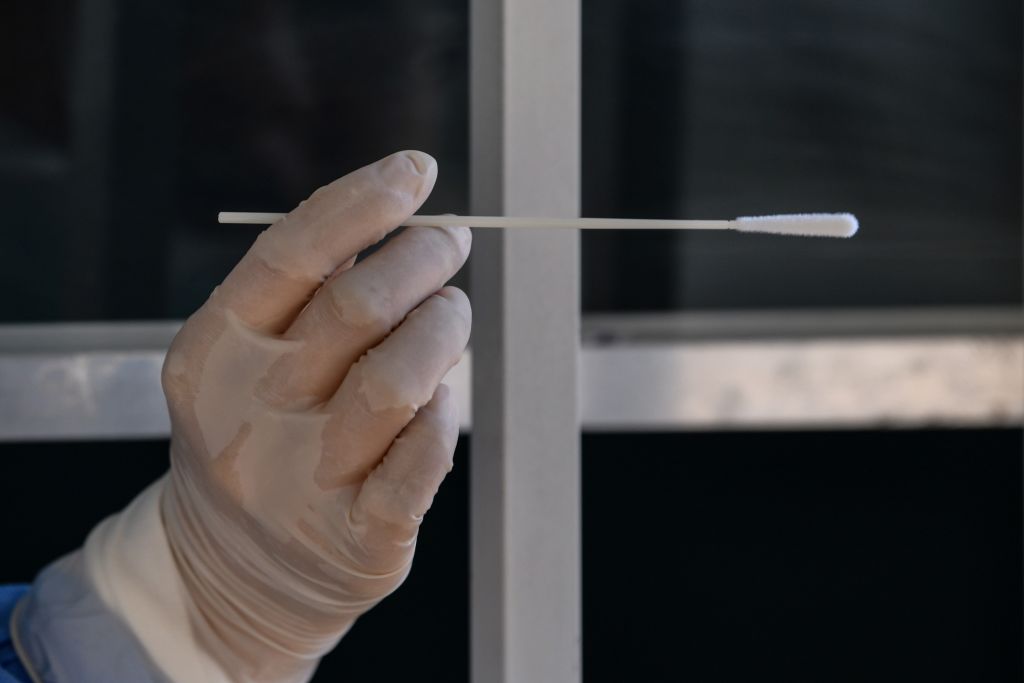Beijing is reportedly subjecting U.S. diplomats to COVID-19 anal swabs


A free daily email with the biggest news stories of the day – and the best features from TheWeek.com
You are now subscribed
Your newsletter sign-up was successful
U.S. State Department officials serving abroad, especially in countries with high COVID-19 infection rates, are frustrated over delays in getting vaccinated against the coronavirus, The Washington Post reports. At least 13 foreign governments have offered to inoculate U.S. diplomats with their own supply of U.S.-made Moderna and Pfizer/BioNTech vaccines, and U.S. officials in Russia have even requested shots of Russia's Sputnik V vaccine, which hasn't yet been approved by the U.S. or World Health Organization.
"It's embarrassing for the world's richest country to require the charity of other nations when it comes to vaccines," one U.S. diplomat posted to the Middle East told the Post, "especially when you consider that the best vaccines were made in the U.S." Relying on the kindness of foreigners is not "the only indignity," the Post adds:
In China, some U.S. personnel have complained about being subjected to anal swab tests for the coronavirus by Chinese authorities, said U.S. officials. The invasive technique has been heralded by Chinese doctors as more effective than a nasal swab despite the unpleasant nature of the procedure. In response to questions about the anal swab testing of U.S. officials, a State Department spokesman said the department was "evaluating all reasonable options" to address the issue with the aim of preserving the "dignity" of U.S. officials "consistent with the Vienna Convention on Diplomatic Relations." [The Washington Post]
Read more about the State Department's struggles to vaccine its foreign service officers at The Washington Post.
The Week
Escape your echo chamber. Get the facts behind the news, plus analysis from multiple perspectives.

Sign up for The Week's Free Newsletters
From our morning news briefing to a weekly Good News Newsletter, get the best of The Week delivered directly to your inbox.
From our morning news briefing to a weekly Good News Newsletter, get the best of The Week delivered directly to your inbox.
A free daily email with the biggest news stories of the day – and the best features from TheWeek.com
Peter has worked as a news and culture writer and editor at The Week since the site's launch in 2008. He covers politics, world affairs, religion and cultural currents. His journalism career began as a copy editor at a financial newswire and has included editorial positions at The New York Times Magazine, Facts on File, and Oregon State University.
-
 How the FCC’s ‘equal time’ rule works
How the FCC’s ‘equal time’ rule worksIn the Spotlight The law is at the heart of the Colbert-CBS conflict
-
 What is the endgame in the DHS shutdown?
What is the endgame in the DHS shutdown?Today’s Big Question Democrats want to rein in ICE’s immigration crackdown
-
 ‘Poor time management isn’t just an inconvenience’
‘Poor time management isn’t just an inconvenience’Instant Opinion Opinion, comment and editorials of the day
-
 Trump HHS slashes advised child vaccinations
Trump HHS slashes advised child vaccinationsSpeed Read In a widely condemned move, the CDC will now recommend that children get vaccinated against 11 communicable diseases, not 17
-
 FDA OKs generic abortion pill, riling the right
FDA OKs generic abortion pill, riling the rightSpeed Read The drug in question is a generic version of mifepristone, used to carry out two-thirds of US abortions
-
 RFK Jr. vaccine panel advises restricting MMRV shot
RFK Jr. vaccine panel advises restricting MMRV shotSpeed Read The committee voted to restrict access to a childhood vaccine against chickenpox
-
 Texas declares end to measles outbreak
Texas declares end to measles outbreakSpeed Read The vaccine-preventable disease is still spreading in neighboring states, Mexico and Canada
-
 RFK Jr. shuts down mRNA vaccine funding at agency
RFK Jr. shuts down mRNA vaccine funding at agencySpeed Read The decision canceled or modified 22 projects, primarily for work on vaccines and therapeutics for respiratory viruses
-
 Measles cases surge to 33-year high
Measles cases surge to 33-year highSpeed Read The infection was declared eliminated from the US in 2000 but has seen a resurgence amid vaccine hesitancy
-
 Kennedy's vaccine panel signals skepticism, change
Kennedy's vaccine panel signals skepticism, changeSpeed Read RFK Jr.'s new vaccine advisory board intends to make changes to the decades-old US immunization system
-
 Kennedy ousts entire CDC vaccine advisory panel
Kennedy ousts entire CDC vaccine advisory panelspeed read Health Secretary RFK Jr. is a longtime anti-vaccine activist who has criticized the panel of experts
